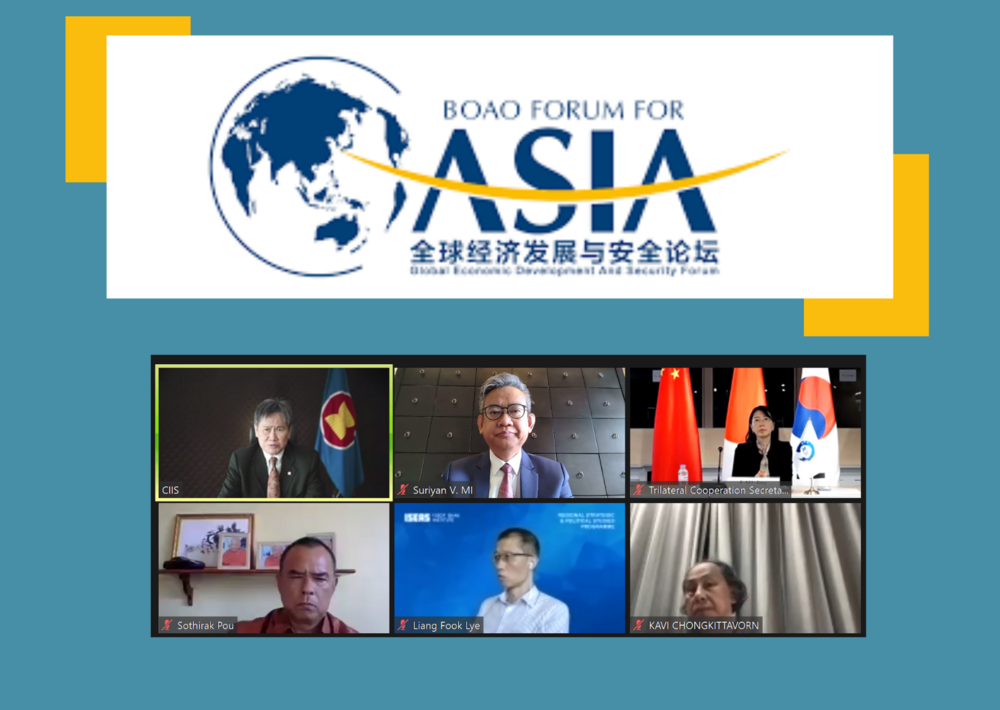The Greater Mekong Subregion (GMS) holds a strong position in cementing strategic regional alliances and accelerating economic growth for a robust Asia
This was the key message of Mr. Suriyan Vichitlekarn, Mekong Institute Executive Director, at the Boao Forum Asia Conference on April 20, 2021.
As one of the high-level dignitaries invited to present recommendations in deepening integration between Asian regional cooperation and the Belt and Road Initiative (BRI), Mr. Suriyan underscored that the GMS—because of its geographical position and considerable resources—is integral to promoting connectivity of Asian, European, and African continents and strengthening partnerships among countries for diversified, balanced, and sustainable development.
Describing the GMS as a “subregional vanguard,” he explained that countries in the GMS can collectively establish, expand, and strengthen an integrated market, infrastructure linkages, and digital connectivity—elements that will secure an enduring architecture for a stronger ASEAN and BRI.
By increasing our investments in human development, dialogues, and learning platforms, the GMS can involve more public-private actors in building more resilient industries and making more sustainable regional economic development and integration
he said.
Mr. Suriyan also emphasized that capacity building and dialogue-for-action initiatives can foster deeper policy coordination in trade and investment facilitation, particularly in optimizing economic corridors and special economic zones.
In addition, he called for partners to jointly institutionalize more communication mechanisms to marshal innovative approaches for the continued alignment of shared interests and fine-tuning of evolving challenges.
Under the theme “World in Change: Join Hands to Strengthen Global Governance and Advance Belt and Road Initiative Cooperation,” the 20th Boao Forum Asian Conference convened government leaders, policy experts, and academics from 60 countries to present solutions to trans-regional issues such as economic integration, climate change, and pandemic control.
Over 2,600 guests attended the Forum in Boao, Hainan, while an estimated 4,000 participants accessed the online sessions, making the event one of the world’s largest conferences in 2021.
For more information, visit https://english.boaoforum.org.








